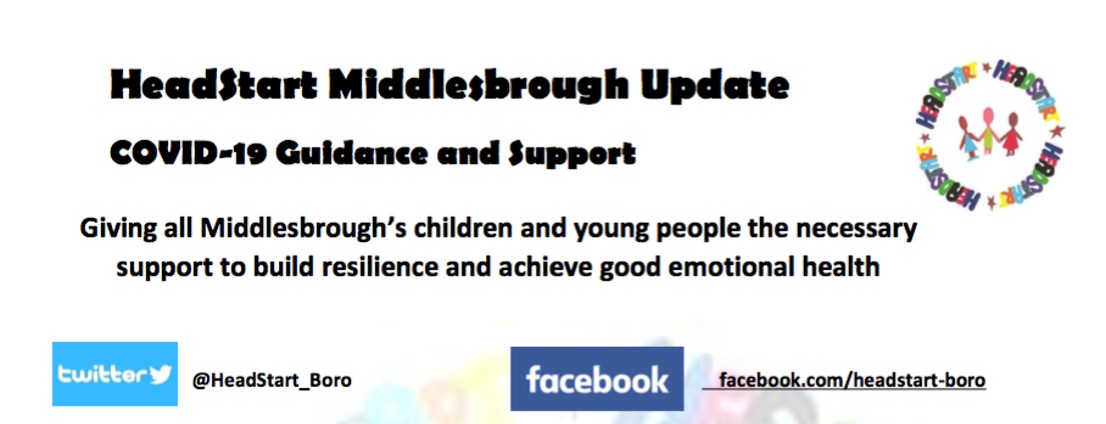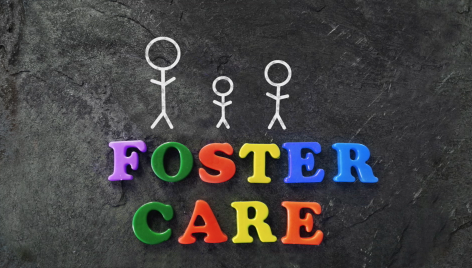- Contact us:
- 01325 466525
- info@acorncare.org.uk

Contingency Plans and Strategy Surrounding Covid-19
March 20, 2020
HeadStart Middlesbrough: Self-care and self-isolation
April 2, 2020In response to the current climate, a special edition newsletter has been produced by HeadStart Middlesbrough to provide access to a range of advice, support, and resources for children and young people, and families and professionals working with children and young people. We decided to share exerts from the newsletter in individual blogs as we believe it will help in these uncertain times.
The world is currently a frightening place for everyone, but for children and young people, their everyday life is very different as schools close and access to most leisure activity is no longer possible. We’re also working from home more, which brings it’s own challenges. In the next series of blogs, we’ll be covering some of the issues highlighted in the newsletter and, where relevant, sharing the contact details of some useful people.
How to cope with working from home – some handy hints:
A) The space where you work…
- Create a space for the work that you can tidy away or close off so work isn’t around you all the time.
- Find somewhere where you can maintain confidentiality and concentration.
- Get a headset or use earphones when making calls.
- Make time to get familiar with other IT options, such as video calls.
- Prioritise your internet access.
- Think about your posture and the chair you use.
- Make sure you have enough light.
B) Boundaries and connections…
- Let people know if you are in isolation, what times you are available, and an alternative contact in an emergency.
- Sound off to colleagues about the strains, find practical solutions, be tolerant, and use humour.
- Check in on your own stress levels and ask for help if you need it. If you are having a good day, then offer support to others.
- Encourage teams to have communication groups (group text chat, which includes all staff).
- Need to work flexibly, but keep to limits.
- Keep supervision slots in place, phone in if working from home, and regular check-ins.
- Try to give yourself breaks between calls, especially those that are high threat.
C) For Managers…
- Daily huddles to include conference call option for those working in isolation.
- Ensure staff at home are contacted informally by others. Basic compassionate connection may prevent added stress or a referral on for support.
- Allocate a staff responder to support others, but swap regularly.
- Recognise that there will be an umber of difficulties for staff – swift changing of roles, parenting, work, etc. – colleagues will be adapting ways to work that they have not experienced before.
- Watch out for signs that someone is struggling.
- Accept that some staff may react in ways that you would not, but that should not automatically be pathologised.
D) The basics…
- Get dressed for the day.
- Try and create a routine, especially if children are home. It may not be realistic to be able to work 9-5.
- Agree your working schedules with other adults at home.
- Regular drinks, but not too much tea and coffee (caffeine)!
- Don’t forget meal times and breaks!
- Move about/stretch – make use of online exercise or meditation programmes, sing, or go and walk the dog.
- Check in with family and friends, especially those alone or more at risk.
- Find activities that help distract from news, anxiety, and work.
E) The household balance…
- Agree a homeworking/schooling structure with family.
- Accepting more ‘screen time’ may need to be allowed for children.
- Be kind to yourself, especially if you can’t live up to your expectations.
- Be aware of own limits.
- Take breaks, so you and your children/partner/friends know what’s happening and you get time together (and apart).
- Get out of the house if you are not self-isolating (remember social distancing).
- Finding time on your own.
- Check in with work colleagues verbally – be mindful of those who may not have any social contact at home.
- Be mindful that people might be more reactive and not behave in their usual way, try not to take it personally.
- Avoid watching too much news or getting regular news updates where possible – try to limit or set times.
- Talk about something different than work.
- Self-care has never been so important – what can you do that you enjoy?
- Recovery college online has lots of resources and information for us and our communities – https://www.recoverycollegeonline.co.uk
- Find ways of managing the household tension.
- If there are relational difficulties (or domestic abuse) at home, then try to seek help for this.
- Have things around you that help you when you feel stressed or overwhelmed.
- Be mindful of alcohol use.




